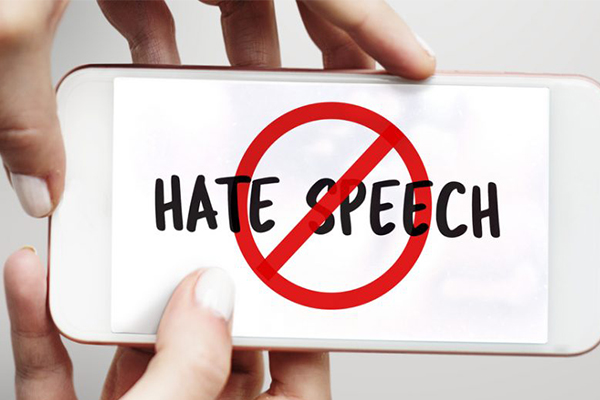Hate speech is intensely prompted in the public sphere in Moldova. Most often, the authors of hate speech are politicians and also representatives of the mass media. Hate speech is more often used in election campaigns, with some of the politicians building their electoral discourse based on discrimination and intolerance. It is hard to assess the real impact of such attitudes, especially because the hate speech most of the times remains non-punished. In this regard, the legislative framework is not sufficiently clear and needs to be modified, says the report “Hate speech and instigation of discrimination in the public sphere and the mass media in the Republic of Moldova” that was presented in a public event on November 26, IPN reports.
According to the author of the study Dumitru Sliusarenko, lawyer for “Promo-LEX” Association, during the monitoring that lasted for half a year there were identified 457 cases of hate speech or cases of promoting intolerance in public, most often in TV programs, youtube channels affiliated to different political, religious and other kinds of groups. Men used hate speech most often, in 88% of cases. “Most of the politicians or religious figures are men, but this does not excuse the proportion,” stated Dumitru Sliusarenko.
Most often hate speech refers to: sexual orientation, political affiliation, religion and beliefs, disability and ethnic origin. Women, political parties and politicians, Muslims, persons with disabilities, unionists, Romanians or Romanian speakers and journalists are most often affected by hate speeches. Among the politicians who most frequently use hate speech are Igor Dodon, Ilan Shor, Marina Tauber, and Vladimir Voronin.
According to Dumitru Sliusarenko, the legislation concerning penalties for hate speeches should be modified. “There are practically no cases penalized in this regard. There is a problem related to legislation and practice. The definitions of hate speech, discrimination and sexist speech in Moldova’s legislation should be reviewed and standardized,” he stated. The author recommended the law enforcement agencies to develop internal instruments to react and publish data about such cases, the mass media to relate the cases impartially and to moderate the comments, while the NGOs to monitor such cases and to conduct awareness-raising campaigns.
Natalia Camburian, of Soros Foundation Moldova, said that when speaking about hate speech, one should realize that this limits the exercise of the rights and, as a result, hamper the participation by people in the community life. “Sometimes hate speech promotes the exclusion of social groups from the community. We consider such cases can be avoided only by a high-quality education process,” she stated.
Ian Feldman, chairman of the Council for Preventing and Eliminating Discrimination and Ensuring Equality, said he sees considerable hate speech on social networking sites. “The politicians use hate speech and the people like, accept and probably vote depending on such speech. If it hadn’t worked, the politicians wouldn’t have used it,” he noted.
Nadejda Hriptievski, programs director at the Legal Resources Center of Moldova, said hate does not come from the population and is rather instigated. “It is not an uncontrollable phenomenon. Swift measures should be taken to counter a massive phenomenon. Not voting for those who promote hate speech is the only weapon we have,” she stated.

